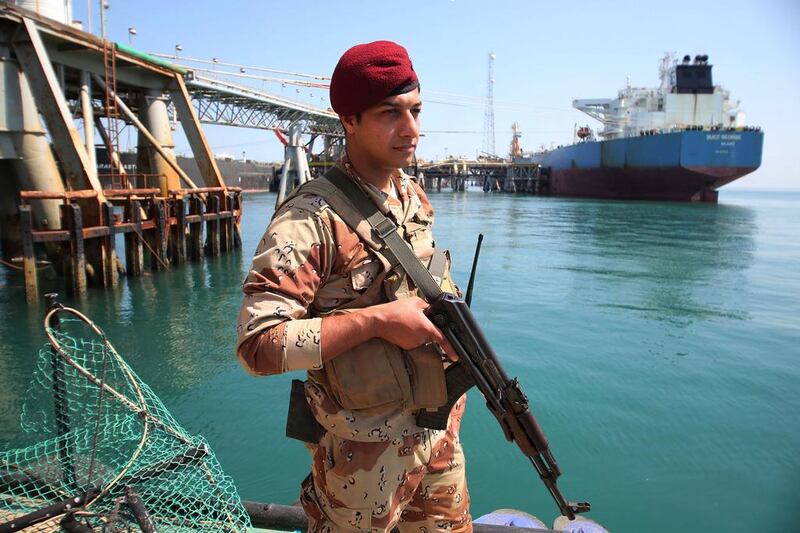Crude exports are set to increase from Iraq despite the escalating crisis in the country.
Iraq’s oil minister said the nation’s crude exports would accelerate next month, adding to signs that violence in the country’s north was not affecting the oil-rich south.
“Oil exports will witness a big increase, as recent events didn’t reflect negatively on Iraq’s crude output and exports,” the oil minister, Abdul Kareem Al Luaibi, was quoted by Bloomberg as saying yesterday. “International oil companies are working normally in Iraq.”
He said exports averaged more than 2.5 million barrels per day (bpd) this month. He did not say what they would be in July.
While violence in Iraq spurred companies including BP and ExxonMobil to evacuate workers from the country, there are few signs so far that oil production is being affected. Iraq’s exports will be close to a record next month. Mr Luaibi said that he had spoken to BP about increasing output at the Rumaila field, the nation’s largest. Toby Odone, a BP spokesman in London, declined to comment on the field.
Iraq, the holder of the world's fifth-largest crude reserves, produces and exports most of its oil from the Shiite-dominated south, which remains largely unaffected by the clashes. Gunmen yesterday seized the 20,000 bpd Ajeel oilfield, which remains inactive, in the northern oil hub of Kirkuk, according to a local police statement.
Iraq’s self-ruling Kurds also outlined plans on Wednesday to swiftly ramp up oil exports now that their forces have seized control of Iraq’s main northern oilfields, a move that could tear up the settlement holding Iraq together since the fall of Saddam Hussein.
The Kurdish natural resources minister, Ashti Hawrami, told Reuters that the Kurds had plans to increase their exports eightfold by the end of next year, including pumping oil from the fields taken by Kurdish fighters two weeks ago.
“We expect to be able to export 1 million bpd by the end of next year, including crude from Kirkuk,” he said, although he insisted the Kurds would share the proceeds with Baghdad. “We want to work with Baghdad under the constitution, and they will get their share of the oil they export from Kirkuk.”
The northern Kirkuk oilfield is defended by troops from the self-governing Kurdistan Regional Government, which controls 45 billion barrels of crude reserves. Iraq, excluding its Kurdish enclave, holds 150 billion barrels in proven crude reserves. Iraq is Opec’s largest oil producer after Saudi Arabia.
Kurdish oil sales are firmly opposed by the central government in Iraq, which says they violate the constitution. Increasing them to such levels would radically alter the balance of power in Iraq, potentially requiring the central government to seek payment from the Kurds for some revenue rather than the other way around.
Two weeks ago Kurdish peshmerga troops took control of Kirkuk – a city Kurds consider their ancestral capital – and outlying rural areas rich in oil, expanding their territory by more than a third.
Options traders are overestimating the chances of violence in Iraq disrupting immediate crude supplies from the country, said BNP Paribas and Barclays.
Call options to protect against oil-price gains next month exceed the cost of put contracts to hedge declines by 3 percentage points. The premium, known as a call skew, is the highest since August. BNP Paribas is advising investors to bet it will not last, and Barclays also anticipates a narrowing, without recommending the same trade.
“The bottom line so far is we do not have a supply disruption,” Harry Tchilinguirian, BNP Paribas’s head of commodity markets strategy in London, said yesterday. The bank recommends selling September Brent call options and buying puts.
* with agencies
Follow us on Twitter @Ind_Insights





